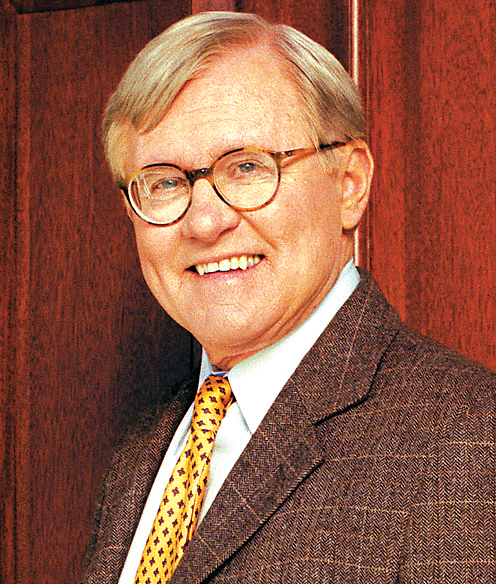Greg Bialecki
Title: Partner, Executive Vice President, Redgate
Age: 55
Experience: 31 years
Greg Bialecki was recently made a partner at Redgate, after a year with the firm. Before that, he served the Patrick Administration as secretary of Housing and Economic Development, overseeing 12 state agencies with more than 800 employees and an annual budget of over $400 million. Prior to joining the Patrick Administration, he was a lawyer who helped developers with well-known urban projects including Fan Pier and North Point.
Q: What was it like to go from the private sector to the public sector and back to the private sector?
A: For me it wasn’t as big a cultural shift as it might have been for some people. When I came out of law school I was fascinated with real estate and particularly real estate development. The part of the business that I always really enjoyed was the intersection between public and private. A lot of my career was working with local and state officials and trying to work through complicated permitting processes for my clients. It was not as if I was over in the private sector spending time with business people and now I was introduced to some brave new world. I was really sitting across the table from a lot of government folks for many years. That’s what I did on a daily business, so in some ways, I was just walking around to the other side of the table. I think that helped me a lot.
I certainly came there with a point of view, which was the point of view that Gov. [Deval] Patrick shared which was that it was too difficult to get things done here. Even the things that looked like would be a good thing for the city or the state to have happen. In a way, now I’ve come full circle. I’m back on the other side of the table. I’m focused on the front-end of the development business, identifying promising sites and in our case, that usually means we think it has a lot of potential, but it’s probably undervalued because it’s not zoned and entitled for its highest and best use. So we work with the team to come up with strategies to try to get that zoning and entitlement lined up for the highest and best use. I still work with state and local officials on how to get to a win-win solution for the permitting.
Q: Given all the time you’ve spent in this field, if you could wave a magic wand, what would you make happen?
A: Housing is still the key in my view. Fundamentally, it is definitely holding us back. Massachusetts is a state that has 351 cities and towns. Although they complain from time to time, they are the drivers of what happens in zoning and land use. Sometimes a project may need a state permit, but by and large, what you can build is governed by the cities and towns. That’s not going to change and I wouldn’t want it to change.
There are other states that have a more effective county government that allows them to plan on a more regional basis. We haven’t gone in that direction in Massachusetts. In fact, our county level government has dissipated. Fundamentally, for a variety of reasons, even though they can be careful in their deliberations, they want to see new commercial growth. It’s good for the tax base and most cities and towns, if a business wants to locate there, they’re are trying to find a way to figure out how to make it happen.
Housing, on the other hand, is a challenge. Statewide, there’s no question we need to build a lot more housing. From a local perspective, there are a lot of communities that have come to the conclusion they just don’t want it in their town. If people take that narrower perspective, it’s hard to make progress on housing. We’ve tried ways to get cities and towns to act individually that reflect the great need, but we continue to struggle to figure out how to get that alignment. I think it’s holding us back. When you look at the opportunities for a talented young person today and the differential in housing costs across the country, the differences are amazing and that’s got to be having an effect. If this can be a city and a region that you can really get around without owning a car, like New York, if we did those two things, it would make this place even more attractive to talent and I think our prospects would be very bright.
Q: What do you do when you’re not working?
A: I really do love to work. It’s really been fun to see how the city and the neighborhoods have changed in the last 10 years. I love to get out evenings and weekends and see how Boston, Cambridge and Somerville have changed. I think it’s a really exciting time. It’s fascinating to check out new restaurants, bar, and art galleries in and around Boston. When I took the job working for the governor in 2007, our oldest kids were in high school and college. Part of my motivation was, at that time, it didn’t feel like Boston and Massachusetts had the vibe that it was one of the most exciting places in the country for a young person to be. I could easily see my kids deciding there were more exciting places to live, once they got out of school. I’m a person who believes that growth and change is good.
Q: So how many of your kids live locally today?
A: We’re actually doing pretty well. Our oldest lived in Arlington, Virginia and I’m glad to say he’s moved back to Boston. Our daughter is at UMass Medical School, so she’s here now, but she just found out her residency will be out of state. Our next son is a political junkie and he just loves everything about D.C. so it may take a while before we get him back. But it’s not too far and we love to visit.
Bialecki’s Five Most Quotable People:
- Winston Churchill
- Groucho Marx
- Deval Patrick
- Richard Feynman
- Carl Spackler (from Caddyshack)







